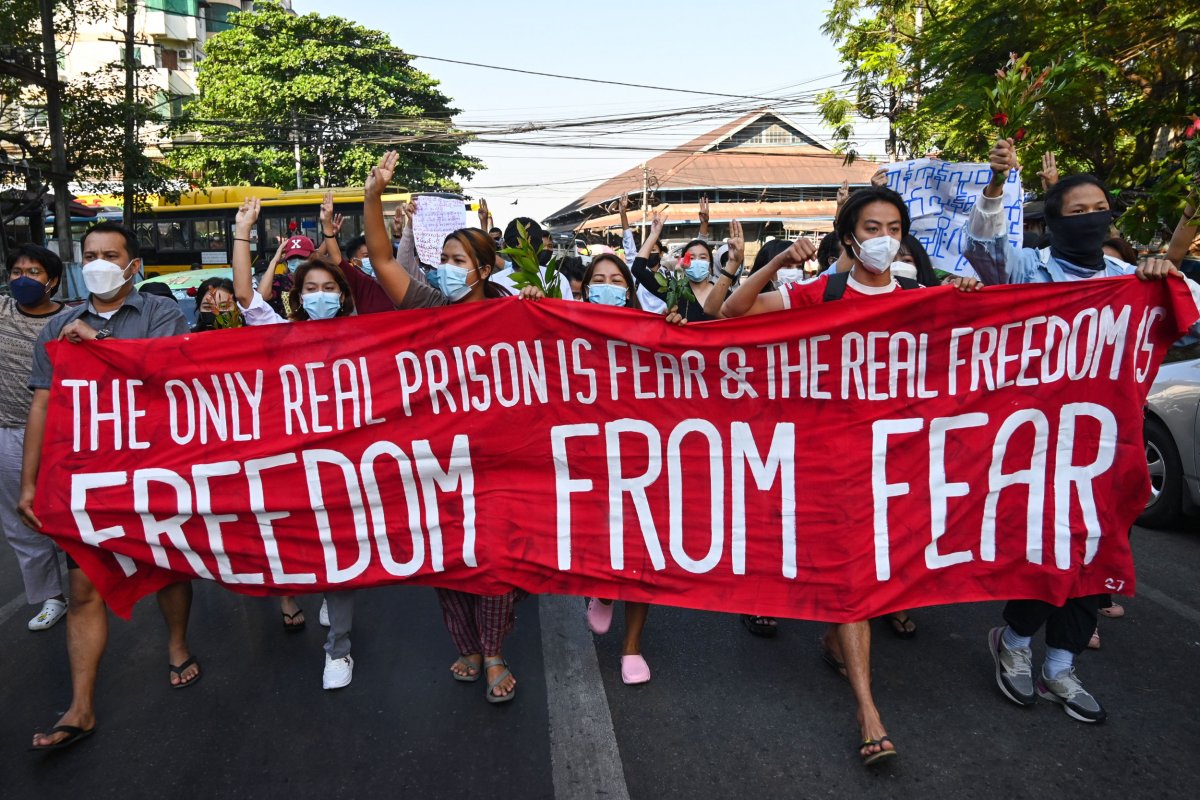Soccer player Pyae Lyan Aung came to Japan last May with Myanmar's national team for a World Cup qualifier. Just before a match against Japan, he flashed a three-finger salute to protest the military's February coup.
Nine months later, his father placed an advertisement in a local state-owned newspaper publicly disowning him and disavowing his actions.
"Pyae Lyan Aung has been a source of problems and disappointment," a lawyer for his father said in a statement.
Pyae Lyan Aung's story is just one example of a growing number of Myanmarese families that have been forced to disown their own children for their support of the country's pro-democracy movements.
Every day for the last three months, an average of six or seven families have posted notices in the country's state-owned newspapers cutting ties with daughters, sons, nieces, nephews and grandchildren who have publicly opposed the ruling military junta.
While publicly disowning relatives has a history in Myanmar, the frequency of these statements increased after the army announced in November that it would raid family homes, take over the properties of its opponents and arrest people giving shelter to protesters.
Since ousting the democratically elected government in February 2021, the junta led by Min Aung Hlaing has arrested more than 9,000 people and killed an estimated 1,547 protesters, according to the Assistance Association for Political Prisoners in Burma [the historic country name of Myanmar].
Those closest to the situation are concerned that many of these public declarations have been made under duress.
Lin Lin Bo Bo, who fled Myanmar last year, revealed that his mother said she would disown him after armed soldiers came into her home searching for him. He cried as he read the notice in the paper a few days later.
"My comrades tried to reassure me that it was inevitable for families to do that under pressure," he told Reuters. "But I was so heartbroken."
So Pyay Aung, a journalist who was disowned last November, expressed a similar sentiment.
"When I saw the newspaper that mentioned cutting ties with me, I felt a little sad," he told Reuters. "But I understand that my parents had fears of pressure. They might have worries of their house being seized or getting arrested."
These public denunciations are all part of the military junta's plan to create public dissension and place pressure on protesters, said Wai Hnin Pwint Thon, senior advocacy officer at the rights group Burma Campaign UK.
"Family members are scared to be implicated in crimes," she told Reuters. "They don't want to be arrested, and they don't want to be in trouble."
Targeting families of opposition activists was a tactic used by Myanmar's military during unrest in 2007 and also in the late 1980s. The tactic has been revived and used far more frequently since the coup began, Khin Maung Myint, a veteran high court lawyer in Myanmar's commercial center and former capital Yangon, told Radio Free Asia.
"There were many such incidents in 1988, and even after a person was imprisoned, his family could not carry on with their businesses unless they cast him out," he said. "It's not hard to imagine how heartbreaking it would be for the rest of the family to take this as a precautionary measure."
Two parents who disowned their children in similar notices told Reuters that they issued their public statements to show authorities that they are not "troublemakers" and should not be held responsible for their children's actions.
They both asked not to be named for fear of attracting attention from the military.
"My daughter is doing what she believes, but I'm sure she will be worried if we got into trouble," one mother told Reuters. "I know she can understand what I have done to her."

Uncommon Knowledge
Newsweek is committed to challenging conventional wisdom and finding connections in the search for common ground.
Newsweek is committed to challenging conventional wisdom and finding connections in the search for common ground.
About the writer
To read how Newsweek uses AI as a newsroom tool, Click here.





